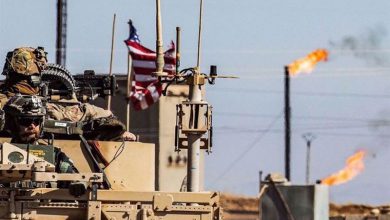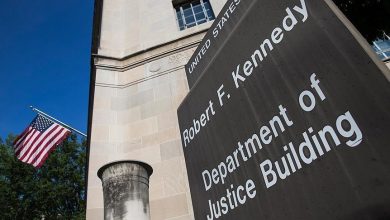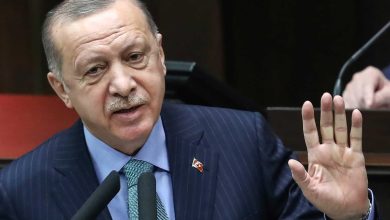The tourist attraction of western Iran is the idyllic region of Hewraman. The area is known worldwide for its breathtaking mountain formations, the river Sirwan, the many springs, the winding roads with a new view around every corner, and the beautiful villages built against the cliff, where people still walk around in traditional Kurdish clothing and speak the (slowly but surely dying out) Kurdish ‘Gorani’ dialect. The area has many archaeological discoveries, and there would still be a lot of treasures hidden in these mountains.
Many European adventurers have already stripped this region off their wish list, the rest probably recognizes it from pictures or television. Many of the lucky ones who visited this area, have also visited Hotel Sileen during their trip.
Hotel Sileen is booked out in spring and summer. Iranians from all over the country, as well as foreign tourists and backpackers, come here to enjoy the beautiful view. The whole village is on its feet to serve the guests and earn their living. What these tourists do not know, however, is that there is a very different atmosphere in autumn and winter. When the village runs empty, and the guests disappear for a few months, there is nothing left but fear.
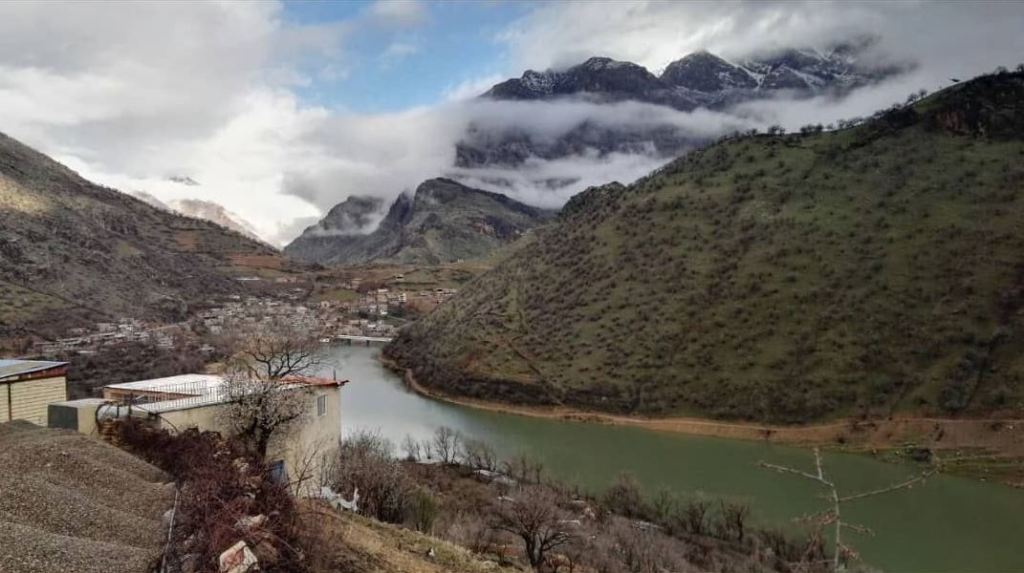
IKHRW’s reporter spoke with the manager of hotel Sileen, Kemal Adwajie, who cried tears with spouts during our phone conversation. He has closed the doors of his life’s work, and doesn’t know if he can continue.
Hewraman’s fantastic mountain formations are a true war zone outside the high season. The Party for a Free Life of Kurdistan, better known as the PJAK, houses its forces in this area. The mountains Kosalan, Shaho and Dalaho each have their own camps. The village of Sileen is located in a region called ‘Hewraman-e Takht’, which is located exactly between a triangle of mountains, with on one side Mount Kosalan, on one side Mount Shaho, and on the other side Iraqi Kurdistan. This makes the village of Sileen an important crossroads for these forces.
The village is also home to the families of about six fallen PJAK fighters, and three times as many young people from Sileen are currently fighting for this party. This makes Sileen a convenient place for the fighters to pass through. That the Iranian authorities are well aware of this is shown by the fact that just behind Hotel Sileen there is a base of the Iranian Revolutionary Guard.
Kemal has put his whole soul and fortune into hotel Sileen, and lives himself with his wife and children in a residence on the first floor of this hotel. Autumn, right after the tourists had left, the threats started. First through a guest, who passed on the message, and then through his daughter, who told him, crying, that men armed with rifles had come asking about her father. Only after she explained to them that Dad had left for the city to do some shopping, they left.
Kemal then received a letter, which they had given to Shaho, one of the neighbors, saying that the PJAK would appreciate it if he would become acquianted with them, and that they wanted money from him. He was never able to answer this letter.
The next night, Kemal heard rumbling on the roof, just before the same armed men broke the front door and stormed into his family’s quarters. Moments later, his hands were tied on his back and he was threatened again. “Give us thirty million toman, or we’ll throw you in the water!” Kemal’s wife handed them with trembling hands a bundle of ten million in cash and a pouch with bank cards, only then his hands were untied. On the way out, he was threatened again that they would come back for the remaining twenty million. Early in the morning, the family closed the doors and left for the nearby city of Meriwan. He still has not returned to the hotel.
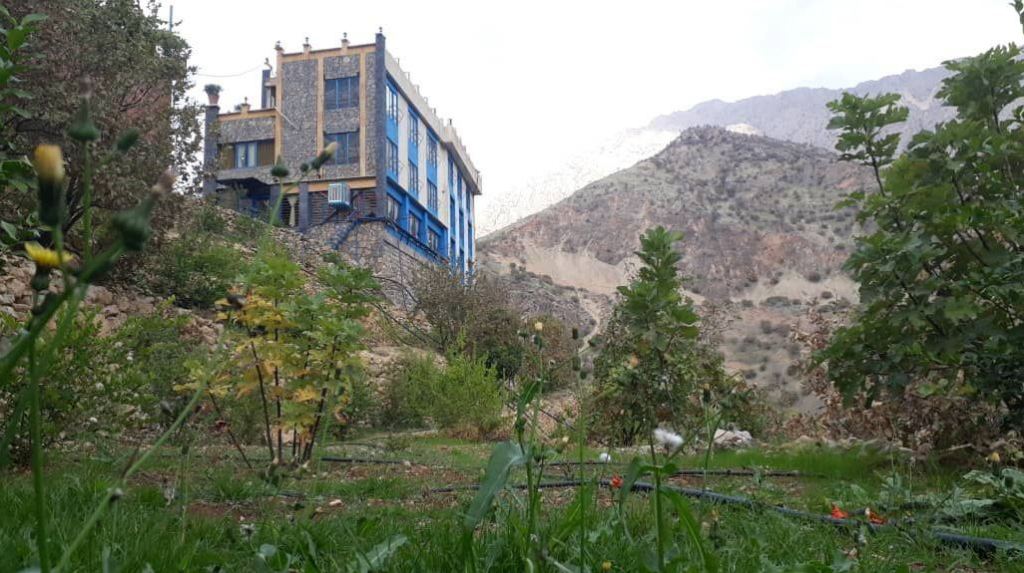
In Meriwan, however, Kemal and his family were no better off. He is now on trial for financing terrorism. After all, the PJAK is marked as a terrorist organization in Iran, and giving money to a terrorist organization is strictly forbidden. He is restlessly awaiting his trial. The hopelessness, the injustice, almost becomes too much for him.
Annoyed, he reminds our reporter again that there is a base of the Iranian Revolutionary Guard just behind the hotel, but they do very little to improve the security situation. When this base was placed, most villagers were happy. Threats and extortion are part and parcel of the business life of the village of Sileen. Unfortunately, the results were disappointing.
“Every movement of the Guard is being laid under the microscope,” he explains, “At the smallest arrest, let alone a gunfight, reports are popping up all over the world. Of course, those people aren’t eager for reprisals or fuss.” The PJAK portray themselves as activists, fighting for the representation of Kurdish rights, and have a strong lobby in European countries and Washington. However, according to Kemal this is plain nonsense. Economically, according to him, a lot can be improved, but: “Threatening, blackmailing and violence does not help us – the local Kurdish population – at all. I support my staff and their families, that is the only thing helping in an area with a lot of unemployment. The money that was taken from me was meant to pay their wages”.
Kemal now has to defend himself in court, something he rightly finds very crooked. “I was tied up and threatened, what was I supposed to do? If I hadn’t given the money, they would surely have killed me!”
He bases this view on earlier events in the village. “For example, a petrol station was set on fire before, after the owner hadn’t given the money. And just last week a glass factory was destroyed with a hand grenade and Molotov cocktails. An employee of a health center, Majid Nikpasand, was also threatened for money and medication, and his car was shot with six or seven bullets. My friend’s car was also set on fire a few years ago after a failed attempt at extortion.”
According to Kamal Adwayi, he has not dared to bring his family inside his hotel since then.


